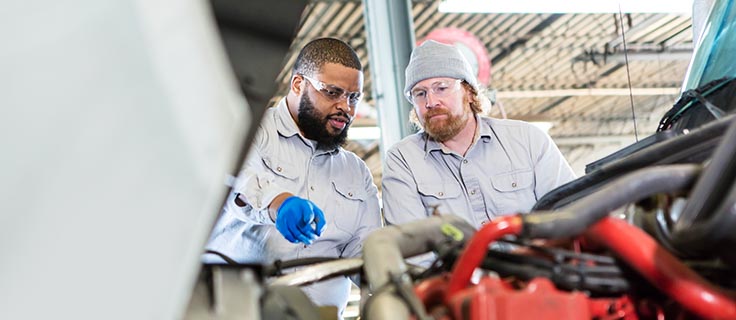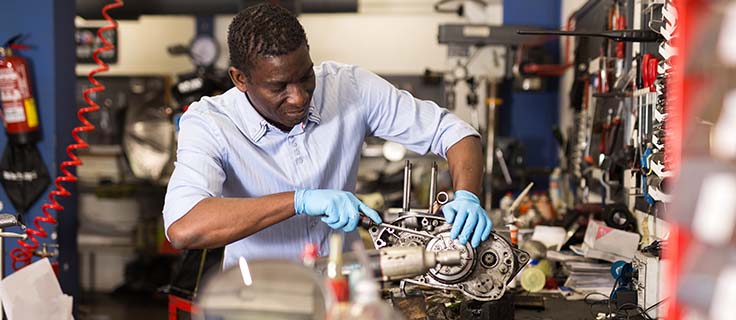What does an automotive repair technician do?
Automotive repair technicians, also called automotive service technicians or mechanics are expected to have a wide variety of skills. They inspect, maintain, and repair cars and light trucks for individual clients or businesses. Besides having to understand traditional mechanical systems such as engines, transmissions, and more, technicians are now expected to also be familiar with the computer and electronic components of more modern vehicles.
How much does an auto repair technician make?
The national average salary for a trained automotive service technician was $47,770 in 2023, whether you’re employed in a small shop or a dealership, and other factors.*
What is the current job outlook for auto repair technicians?
The number of vehicles used in the United States is expected to continue to rise, meaning experienced and trained auto repair techs and mechanics will be needed to perform basic maintenance and repair regularly.
What is a sample job description of an auto repair technician?
An example of a general post for an open auto repair position will describe the day-to-day work you’re expected to complete, from troubleshooting vehicle issues, diagnosing and repairing issues, and providing estimates of costs for repair to clients. Additionally, technicians should have strong customer service skills to effectively work with shop or dealership clients.
How long does it take to become an auto repair technician?
With a comprehensive, online auto repair technician program, you can study to become a mechanic around the schedule that works for you. After completing academic work, graduates can then prepare to sit for Automotive Service Excellence (ASE) certification exams to round out their resumes.
How do I become a certified ASE auto repair technician?
There are several different ASE certifications repair technicians can sit for, so choosing the right one for you is the first step. To be eligible to sit for certification, students often need to complete a training program at a school, followed by on-the-job work experience.










